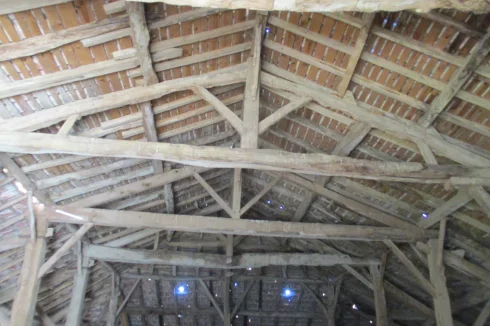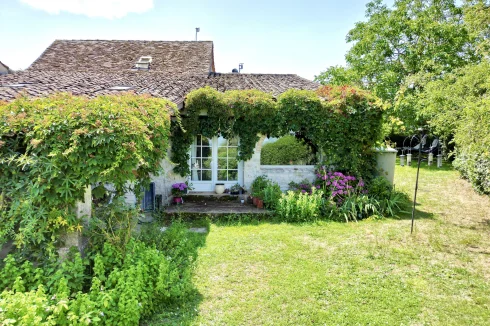Soil Survey on the sale of Building Land
Friday 04 September 2020
In many areas of France a soil study is now compulsory on the sale of building land and for new house construction.
Ground movement as a result of the shrinkage and swelling of clay is a major problem for property owners in France.
Each year the government and insurers pay out millions to households who have suffered major cracks and subsidence to their property, mainly older houses standing on shallow foundations.
Such claims are made under a natural disasters clause in house insurance policies covering 'mouvement de terrain différentiel consécutif à la sécheresse et à la réhydratation des sols'.
In order to reduce the incidence of such claims, since January 2020 a soil study must be carried out before the sale of a building plot for a single family home or for the construction of a house.
Although the system has been in force since the beginning of the year, the requirements of these studies has only just been clarified by regulations published last month. That probably means that sales that took place prior to publication of the regulations are not covered by the new law.
The government have also published a map of those areas affected by the requirement. There are four zones identified according to degree of risk. Those areas where a survey is necessary are coloured orange (average level of risk) and red (high level of risk) on the map.

You can find an interactive version of this map, enabling precise identification of areas, at Carte Argilles.
There are two types of surveys, one for the sale of land and one for construction of a house.
Sale of Land
On the sale of land, a preliminary study (Etude Géotechnique Préalable - EGP) must be undertaken, to give an initial identification of the geo-technical risks.
It must be annexed to a sale and purchase contract and the deed of sale (acte authentique). Responsibility for obtaining the report is that of the seller.
The study must provide a preliminary geological model, the main geo-technical characteristics of the site, as well as the general principles of construction to protect against the risk of differential ground movement due to drought and soil re-hydration.
The survey must comply with the with the quality standard NF P 94-500 (GI) from the standards agency AFNOR.
House Construction
A more detailed study (Etude Géotechnique de Conception - EGC) must be provided as part of the contract for construction work or project management of a residential or mixed-use building comprising no more than two dwellings.
The study must "set the construction specifications adapted to the nature of the soil and the construction project, taking into account the recommendations made during the preliminary geotechnical study reducing as much as possible the geo-technical risks identified and considered important, in particular the risk of differential ground movement [...]".
Compliance with the requirements is deemed to be apply if it is carried out in accordance with survey standard NP 94-500 (G2) from AFNOR.
Responsibility for obtaining the study is the client, who may commission the study directly, ask their builder to have it carried out, or use the report provided at the time of sale if a full EGC study had been carried out.
An alternative is proposed to a builder who uses the standard form of building contract for a new home (Contrat de construction de maison individuelle - CCMI), who is required to respect certain particular construction techniques, which are defined in law. Ultimately, it is the decision of the client whether to use this exemption.
There is also clarification in the regulation specifying the soil survey requirements for an extension to an existing dwelling, where a soil study was previously carried out. As a general rule, the specification set out in the initial study must be used.
The requirement for study does not, however, apply to extensions or garages if the surface area of the project is less than 20m2 and the new construction is detached from the existing building.
Interestingly, there are no sanctions for non-compliance with the new law, although a seller could be held liable under hidden/latent defects (vices cachés) laws in the event of problems arising with a new dwelling.
Thank you for showing an interest in our News section.
Our News section is no longer being published although our catalogue of articles remains in place.
If you found our News useful, please have a look at France Insider, our subscription based News service with in-depth analysis, or our authoritative Guides to France.
If you require advice and assistance with the purchase of French property and moving to France, then take a look at the France Insider Property Clinic.





